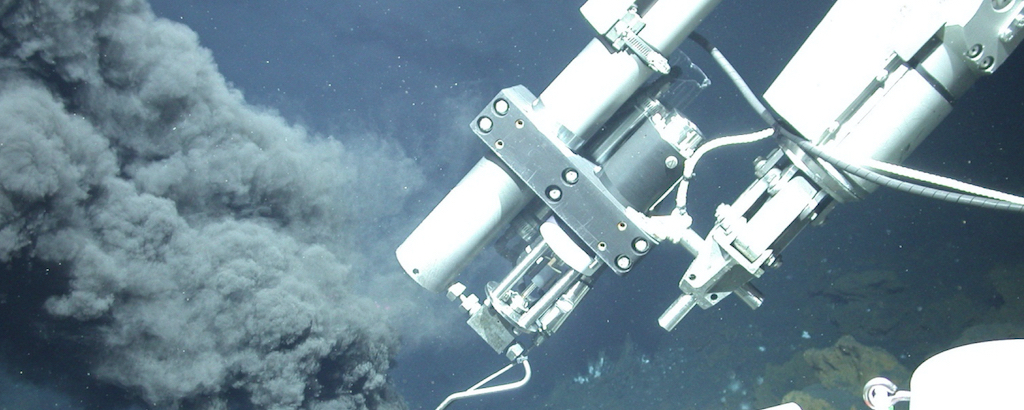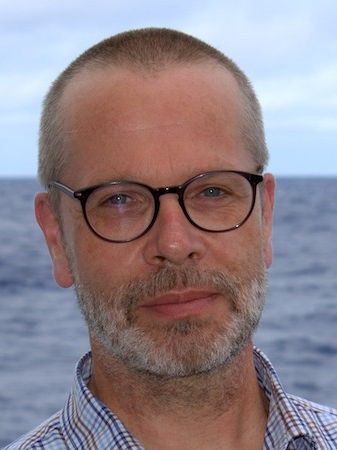Welcome to our homepage
Petrology of the Ocean Crust
Work areas
Our work areas include mid-ocean ridges where new ocean crust is generated by seafloor spreading and underwater volcanism (e.g., Mid-Atlantic Ridge), seamounts and ocean island volcanoes located above so-called hotspots (e.g., Canary Islands, Cape Verde Islands), subduction zones where ocean crust dips into the mantle and is later recycled (e.g., Manus Basin), and last but not least, hydrothermal systems of these areas where geochemical reactions enable chemosynthesis-based life.
moreAnalytics
Our analytical methods include microscopic examination of rocks, geochemical analysis of solid phases and fluids by plasma mass spectrometry (ICP-MS), microgeochemical analysis of minerals and glasses by laser ablation ICP-MS and electron probe microanalysis (EPMA), and thermodynamic calculations of mineral-solution equilibria in fluid-rock interactions and of energy balances in biogeochemical reactions, among many others.
more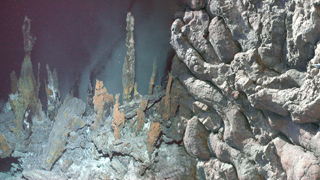
What we do
The continuous formation and destruction of ocean crust is a characteristic of global plate tectonics and the dynamic Earth.
Our research group studies different aspects of this cycle, which has a crucial influence on the chemical evolution of the main reservoirs of our planet.
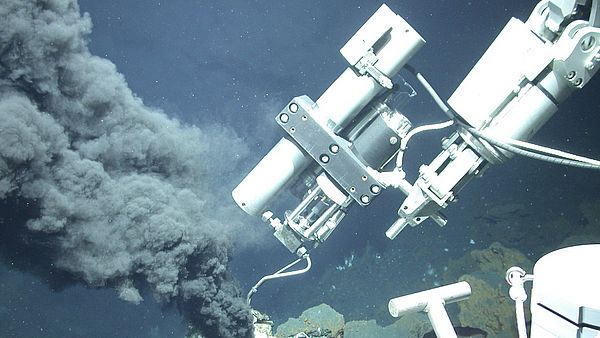
Our bases
Our rock samples come from the seafloor and from land and underwater volcanoes. They are taken with the help of research vessels and unmanned or manned submersibles, as well as during land work.
Furthermore, we study hydrothermal systems such as black smokers, where seawater reacts with hot ocean crust. Massive sulfide deposits as well as unique chemosynthetic ecosystems occur at these hot springs.
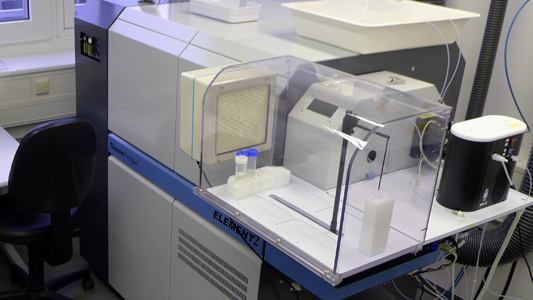
Our methods
We analyze the rock samples geochemically and mineralogically to better understand how ocean crust and ocean islands form and evolve. In addition, we investigate the mass and energy fluxes of the hydrothermal systems with analytical and theoretical geochemistry.

